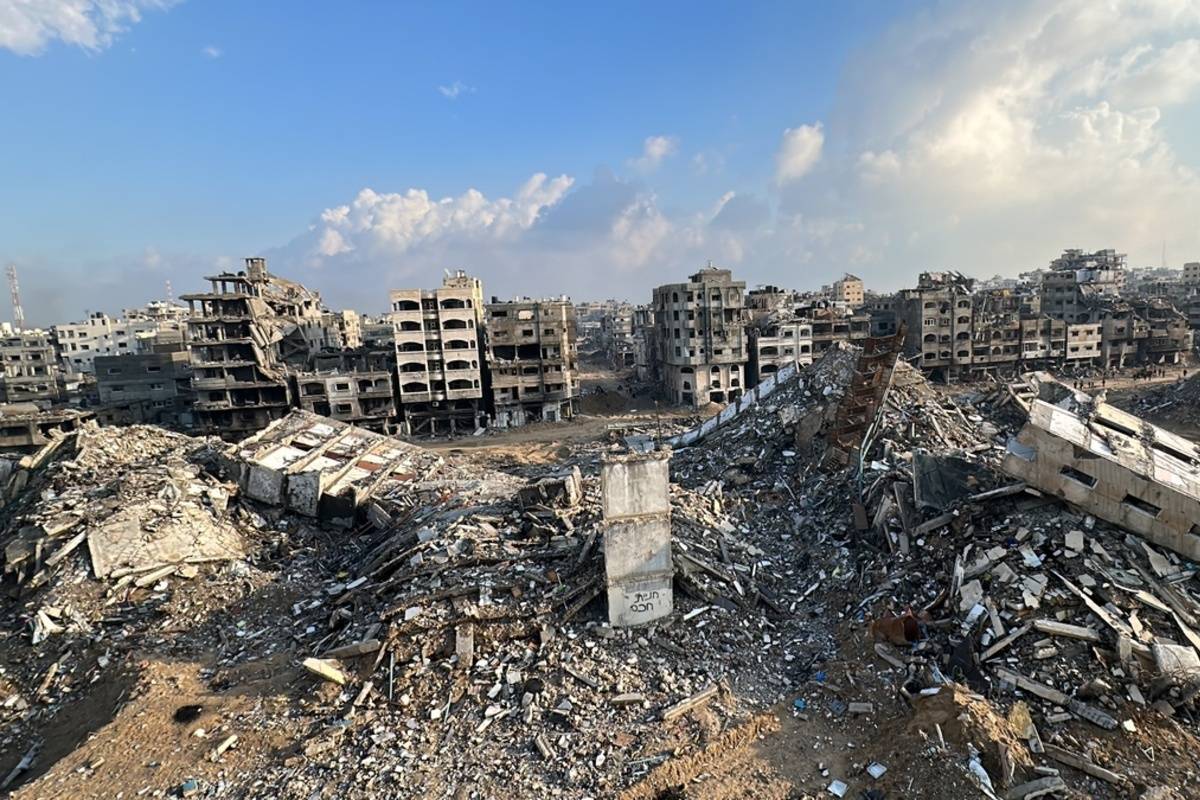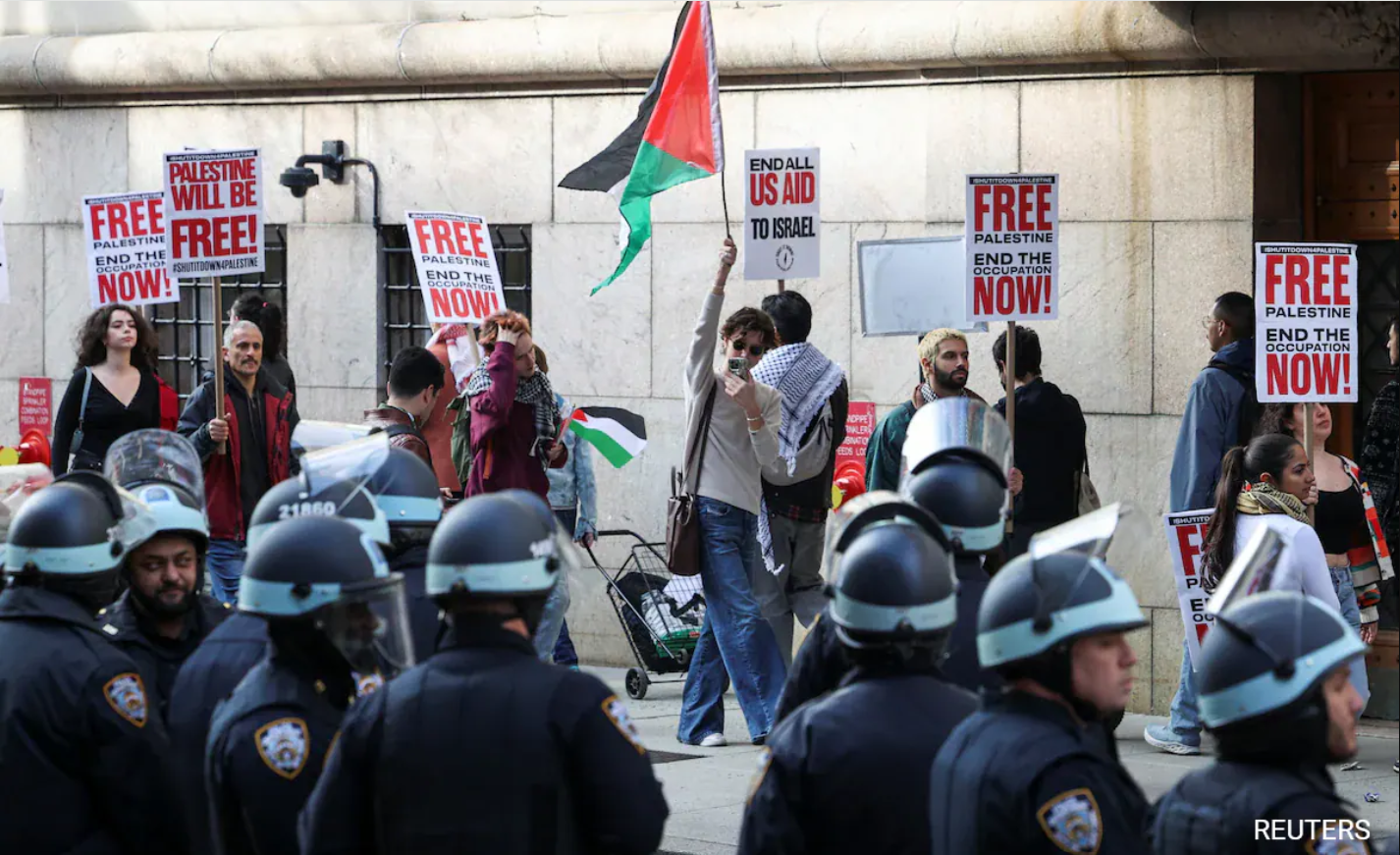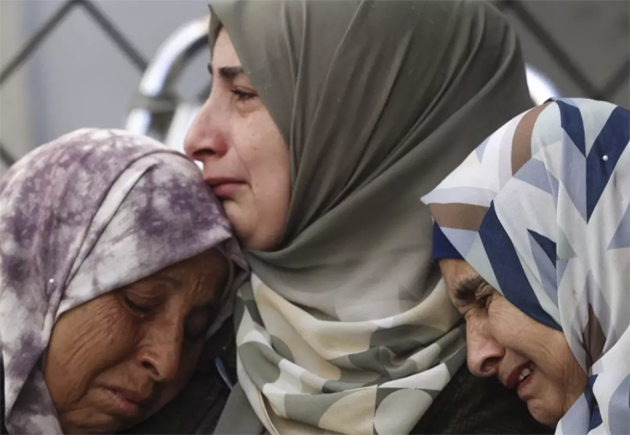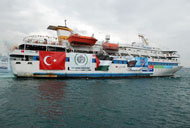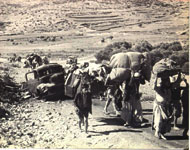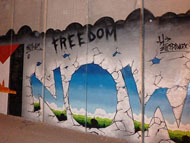
Last night I introduced a friend from home to one of my new friends from Ramallah. As we chatted, we started to talk about the summer and the prospect for us in Britain to be able to venture outside, for camping, barbeques, festivals and the like. My Palestinian friend listened and nodded politely but I was sure he was holding back.
Further into the conversation, as everyone was more comfortable in speaking their mind, he admitted his frustration at hearing such things. As we freely talked about our summer plans, he had been thinking about the restrictions laid on him that prevents such summer time frivolity. For instance, when we talked about camping, he said he was thinking, ‘I am scared when I go camping. As my foreign friends enjoy the ‘freedom’ of sleeping in the great outdoors, I am nervous that a shot might fire over our heads at any time. I am worried that Israeli military could appear at any time and demand our ID, or even detain us for some unknown crime. My foreign friends do not think about this.’
This lack of freedom and the constant anxiety it instills is a fact of life that Palestinians, many of whom were born under occupation, must counter into their lives every day. As those of us who are lucky to come from a liberal, fair and free country, we are unaware of the constant stress caused by living under occupation. Whether this is about the length of a journey because of checkpoints along the way, or whether your family will get their permits in order to worship in Jerusalem during holy days, the occupation must always figure largely in the minds of Palestinians.
I am wary of talking too much about my holidays or the time I have spent travelling around Israel for fear of being insensitive towards those who can’t enjoy the same physical freedom as me. Since being here, I have learnt to be more aware of what Palestinians (particularly those restricted to the West Bank) are permitted and not permitted to do because of the situation and the way in which to ask questions. For instance, I am careful to ask about what plans they have for the summer or, for Christians, for Easter, because ultimately this decision is rarely just their own. They may plan to cross the border to visit family or enjoy a change of scene but this can only happen at the discretion of the Israeli authority which distributes permits. Regardless of holidays, families often find it impossible to visit each other between the West Bank and Jerusalem because of the travel restrictions laid down, resulting in months passing between family visits that would normally only take a 20-minute drive.
This restriction happens between West Bank towns also. Despite travelling from one Palestinian town to another, one could still be denied access by Israeli soldiers at a checkpoint, therefore plans can be made but obstacles and delays are always prepared for, if not expected.
With the constant pressure of second-guessing anything that might come between you and daily life, it must be exhausting to make plans far in advance. When it is uncertain whether there will be clear access for work in the morning, it must surely be a risk to plan something more long term.
I invited this same friend to come visit us in Britain so that he could experience the festivals and the barbeques for himself. The suggestion was met with a polite but cynical smile. In order to get to Britain, he explains, he would have to be formally invited and able to provide reasons for being there and contacts that could vouch for him. In my ignorance, I assumed that these demands came from the Israeli authority. ‘No’ he tells me, ‘this is what your British government asks for.’
So here my friend from Ramallah is telling me about my own country’s visa requirements although he has never been there, never been to Europe. Just because travel seems so impossible at times, does not mean that many Palestinian people do not think about it, look into it, try it. Despite the daily obstacles faced and the amount of forethought that is required to complete the most basic of tasks while under occupation, Palestinians, like anyone else, have more ambitious plans, why shouldn’t they? Just because one is forced to live under a physical occupation, does not mean that one’s mind should be restricted too. The Palestinian people have just as many travel, educational and personal plans as any other but in their instance they can rarely be realized. So for those living in a free state, maybe give some thought, as Palestinians do every minute of the day, to the Israeli occupation and the difficulty of achieving what is a human right - to live life with a free body and mind.
Harriet Straughen is a Writer for the Media and Information Department at the Palestinian Initiative for the Promotion of Global Dialogue and Democracy (MIFTAH). She can be contacted at mid@miftah.org.




